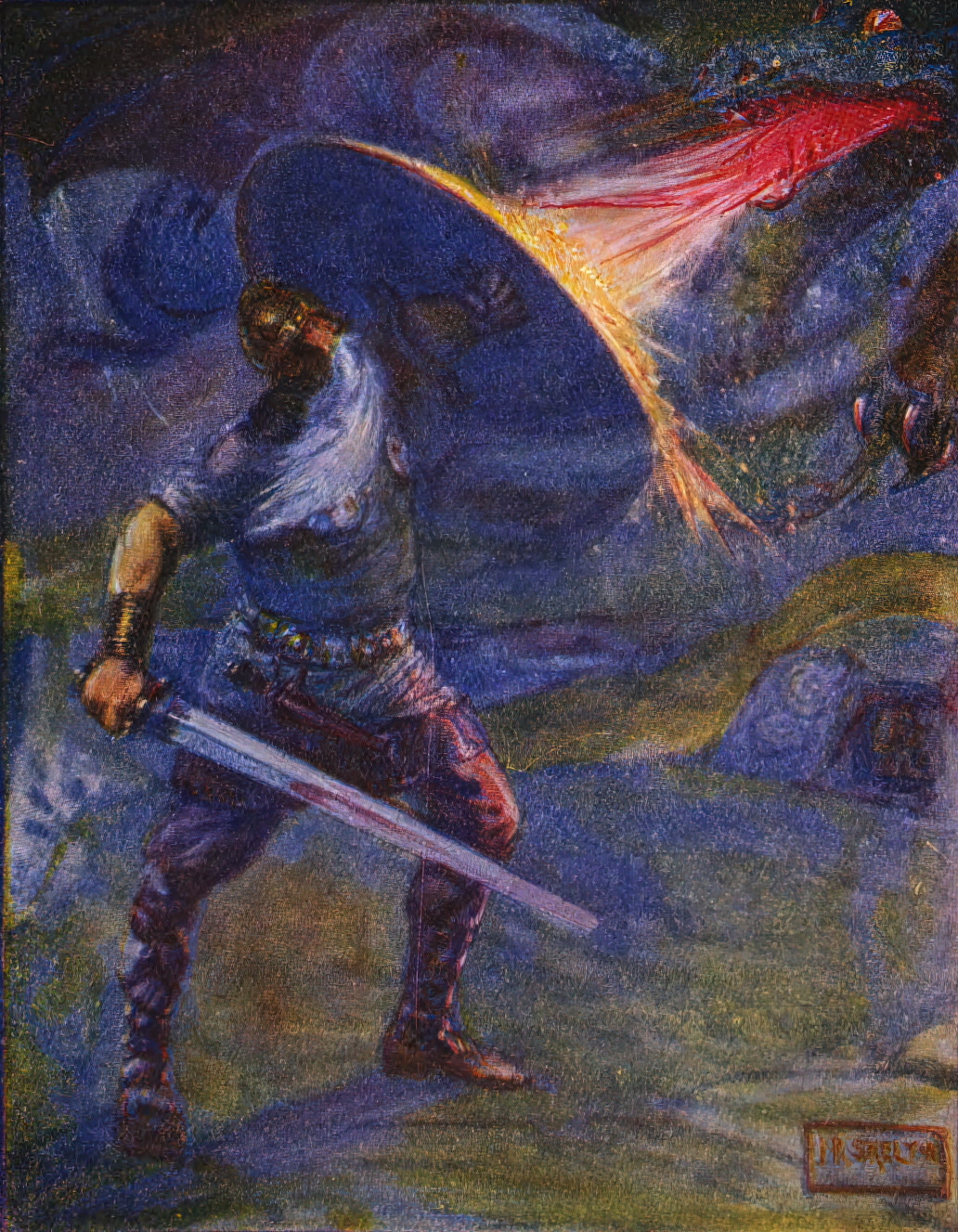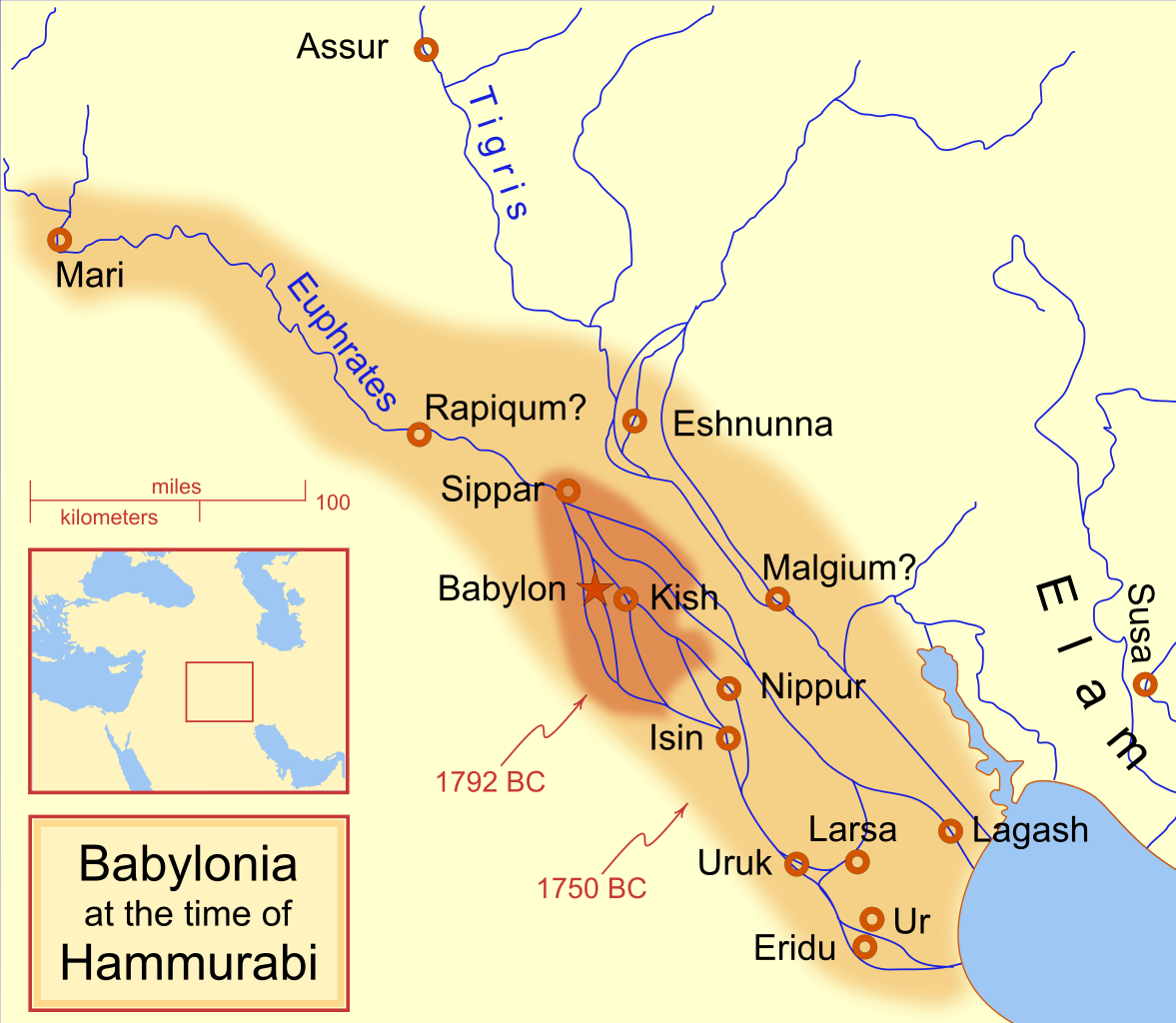This week, I want give a shout out to the greatest work of Old English literature, the epic poem about the legendary Scandinavian warrior king: "Beowulf":
"Beowulf" is a classic tale of the triumph of good over evil, whose titular character bravely faces monstrous foes time and again. One of the earliest recognizable High Fantasy adventure yarns, in "Beowulf," our hero is a Geatish prince who sails to the aid of King Hrothgar of the Danes, whose realm is plagued by the monster Grendel.
Eschewing weapons because he wants a fair fight, Beowulf takes on Grendel hand-to-hand and rips off the poor bastard's arm! Grendel flees and bleeds out. Grendel's Mother seeks revenge, killing Hrothgar's most loyal fighter, so our hero takes her out, as well. Beowulf refuses kingship of the Danes and returns to his home, becoming king of his own people. A half century later, a fearsome dragon threatens the kingdom and Beowulf, despite being an old man at this point, rides out for one last job.
Originally passed down through oral tradition, "Beowulf" was transcribed to manuscript form by an anonymous Anglo-Saxon poet, referred to by scholars as the "Beowulf poet". Although the epic poem was actually written down sometime around 1000 AD, the action takes place throughout much of the 6th century. The poem blends both fact and fiction for entertainment purposes, including actual people and events, such as the Battle on the Ice of Lake Vänern.
When I note that "Beowulf" is a "epic poem," I don't just mean that it is a poem that is epic, but rather "epic poem" is a literature term of art:
An epic poem, of course, requires an "epic hero": a brave and noble hero with superhuman abilities who embodies traits that are important to their culture. Other epic heroes include Achilles and Roland.
A key figure in the literary analysis of "Beowulf" is none other than Oxford scholar J. R. R. Tolkien (who, of course, in his spare time wrote the definitive high fantasy works "The Hobbit" (1937) and "The Lord of the Rings" (1954)), who noted the epic poem's place in the cultural history of Britain. This, in turn, helped to re-popularize this ancient yarn.
It's no surprise that the good professor was a fan of "Beowulf". For example, Tolkien said that the Dragon in Beowulf is one of only two *true* dragons in all of literature - the other being Fafnir. It's also no surprise that "Beowulf" was a source of inspiration for the good professor. For example, the Dragon in Beowulf responds to the theft of one of its shinies by going on a murderous rampage throughout the countryside... In addition, "Beowulf" continues to inspire adaptations and reinterpretations even a millennium later.
So, if you are a fan of adventure, High Fantasy or fantasy generally, Norse mythology and culture, or history generally, you owe it to yourself to check out the adventures of one of the first dragon slayers, Beowulf!
Eschewing weapons because he wants a fair fight, Beowulf takes on Grendel hand-to-hand and rips off the poor bastard's arm! Grendel flees and bleeds out. Grendel's Mother seeks revenge, killing Hrothgar's most loyal fighter, so our hero takes her out, as well. Beowulf refuses kingship of the Danes and returns to his home, becoming king of his own people. A half century later, a fearsome dragon threatens the kingdom and Beowulf, despite being an old man at this point, rides out for one last job.
Originally passed down through oral tradition, "Beowulf" was transcribed to manuscript form by an anonymous Anglo-Saxon poet, referred to by scholars as the "Beowulf poet". Although the epic poem was actually written down sometime around 1000 AD, the action takes place throughout much of the 6th century. The poem blends both fact and fiction for entertainment purposes, including actual people and events, such as the Battle on the Ice of Lake Vänern.
When I note that "Beowulf" is a "epic poem," I don't just mean that it is a poem that is epic, but rather "epic poem" is a literature term of art:
"a long narrative poem celebrating heroic deeds, and events significant to a culture or nation."
An epic poem, of course, requires an "epic hero": a brave and noble hero with superhuman abilities who embodies traits that are important to their culture. Other epic heroes include Achilles and Roland.
A key figure in the literary analysis of "Beowulf" is none other than Oxford scholar J. R. R. Tolkien (who, of course, in his spare time wrote the definitive high fantasy works "The Hobbit" (1937) and "The Lord of the Rings" (1954)), who noted the epic poem's place in the cultural history of Britain. This, in turn, helped to re-popularize this ancient yarn.
It's no surprise that the good professor was a fan of "Beowulf". For example, Tolkien said that the Dragon in Beowulf is one of only two *true* dragons in all of literature - the other being Fafnir. It's also no surprise that "Beowulf" was a source of inspiration for the good professor. For example, the Dragon in Beowulf responds to the theft of one of its shinies by going on a murderous rampage throughout the countryside... In addition, "Beowulf" continues to inspire adaptations and reinterpretations even a millennium later.
So, if you are a fan of adventure, High Fantasy or fantasy generally, Norse mythology and culture, or history generally, you owe it to yourself to check out the adventures of one of the first dragon slayers, Beowulf!










.jpg)





